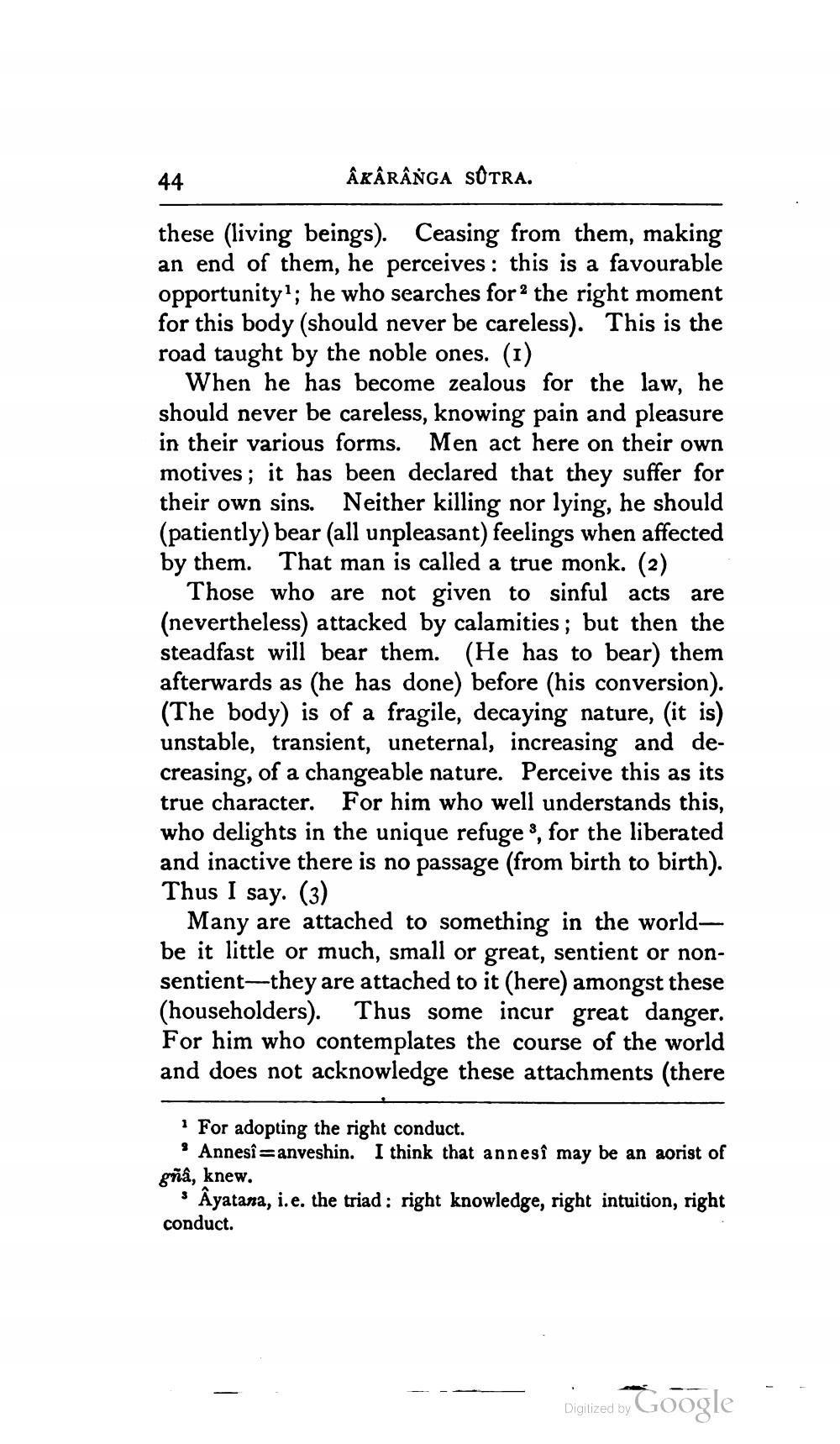________________
ÂRÂRÂNGA SÓTRA.
444
these (living beings). Ceasing from them, making an end of them, he perceives: this is a favourable opportunity; he who searches for the right moment for this body (should never be careless). This is the road taught by the noble ones. (1)
When he has become zealous for the law, he should never be careless, knowing pain and pleasure in their various forms. Men act here on their own motives; it has been declared that they suffer for their own sins. Neither killing nor lying, he should (patiently) bear (all unpleasant) feelings when affected by them. That man is called a true monk. (2)
Those who are not given to sinful acts are (nevertheless) attacked by calamities; but then the steadfast will bear them. (He has to bear) them afterwards as (he has done) before (his conversion). (The body) is of a fragile, decaying nature, (it is) unstable, transient, uneternal, increasing and decreasing, of a changeable nature. Perceive this as its true character. For him who well understands this, who delights in the unique refuge S, for the liberated and inactive there is no passage (from birth to birth). Thus I say. (3)
Many are attached to something in the worldbe it little or much, small or great, sentient or nonsentient-they are attached to it (here) amongst these (householders). Thus some incur great danger. For him who contemplates the course of the world and does not acknowledge these attachments (there
For adopting the right conduct. ? Annesi =anveshin. I think that annesi may be an aorist of gñâ, knew.
s Âyatana, i.e. the triad: right knowledge, right intuition, right conduct.
Digitized by G
Digitized by G
oogle




